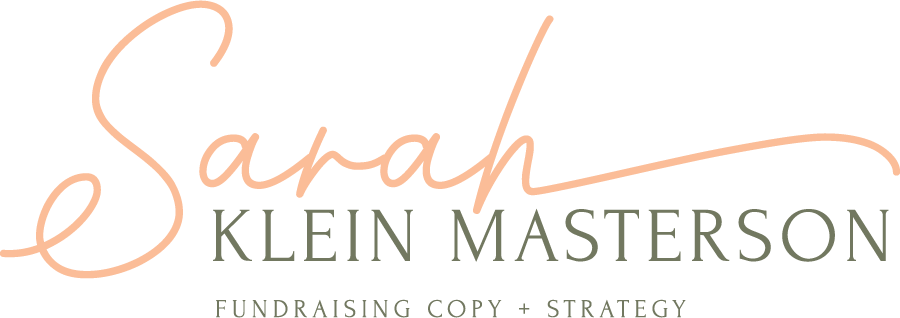ARE YOUR DONOR COMMS TRUSTWORTHY?
I’m on hold with my health insurance company. Again.
By the time a voice recording interrupts the smooth jazz loop for the 11th time to announce “Your call is very important to us”... I’m thinking unkind thoughts.
We’ve all been there, at the mercy of an un-trustworthy messenger.
And the truth is, nonprofits sometimes treat our supporters the same way. Without ever intending to damage trust, some of our communication habits do exactly that:
❌ One-size-fits-all messaging.
❌ One-way communication.
❌ Infrequent outreach.
❌ Asking for money again and again, without reporting back on what the last gift achieved… etc.
But we can make it better!
Research has found four essentials for TRUST: benevolence, integrity, competence, and predictability.
🌟 You can give these attention to grow trusting donor relationships.
Let’s get into it.
🤍 BENEVOLENCE
Benevolence says, “These are kind, caring people who do the right thing.”
You build trust when:
Your communications express genuine care for your donors, showing that you have their best interests at heart – as well as expressing the same for your beneficiaries, team, and community.
Benevolence in action:
Personalize messages as much as possible.
(Segmenting makes a huge difference.)Ask and listen – to donor feedback, input, values and priorities.
(When’s the last time you thoughtfully surveyed… and did something with the responses?)Share warm, authentic thanks and gratitude – often!
(Use Lisa Sargent’s book Thank-ology to chef’s kiss it.)
🤍 INTEGRITY
Integrity says, “These are ethical people with standards of conduct. They are who they say they are. They do what they say they’ll do.”
You build trust when:
You proudly state your org’s values – and show how you’re walking that walk.
Integrity in action:
Share transparently about your decision-making, needs, operations, and outcomes.
(Communicate honestly about both progress and challenges.)Follow through on your promises, big and small.
(Are you really sending those monthly-donor updates you advertised in your appeal?)Practice ethical storytelling, including trauma-informed interviewing.
(I recommend Maria Bryan as a resource, along with the Nonprofit Storytelling Conference.)
🤍 COMPETENCE
Competence says, “These are capable people who have the skills to fulfill their mission.”
You build trust when:
You show and tell that you know what you’re doing.
Competence in action:
Share successes in regular stewardship updates for donors at all gift sizes.
(How often are you reporting the good things donors’ generous hearts are making possible?)
Project a strong, visionary leadership voice.
(Are your leaders directly addressing your supporters to inspire confidence?)
Invite donors to see your competence first-hand, IRL.
(Are you inviting donors to be involved beyond financial gifts, e.g. volunteering and events?)
🤍 PREDICTABILITY
Predictability says, “These people are steady and dependable. I can reasonably predict how they’ll treat me and others.”
You build trust when:
You communicate proactively and consistently over time, rain or shine.
Predictability in action:
Reach out regularly, in a steady cadence all year long.
(Are there seasons when your org goes radio silent?)Have a crisis comms plan, so you can respond right away and stay engaged when stuff happens.
(Use the Nonprofit Risk Management Center as a resource.)Automate where you can, so you communicate promptly when it matters most.
(Like immediate thank-yous, newcomer welcomes, and giving anniversaries.)
🌟 All of this matters more than ever, ever, ever before.
It’s no secret, our nonprofit sector is under attack with negative rhetoric, the stripping of federal funding, intimidation of orgs that “don’t align” with the current administration, and threats to our charitable tax status.
🌟 Above all else, right now we’re called to protect and grow TRUST.
Communication is the way.
Let’s keep our supporters close and keep going.


